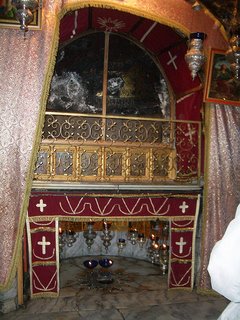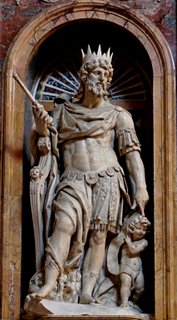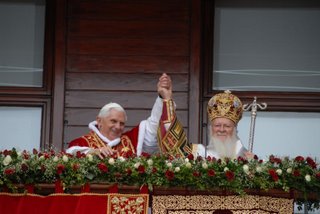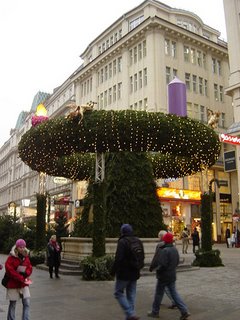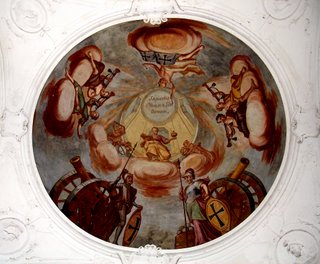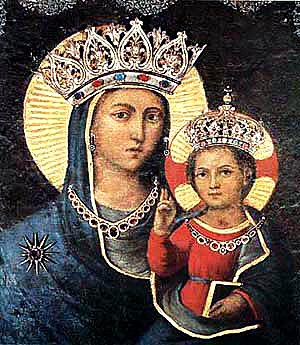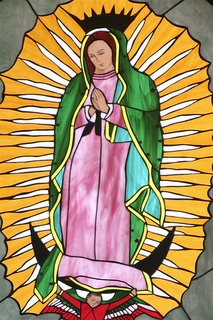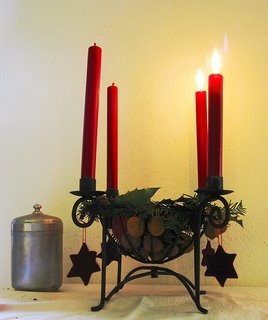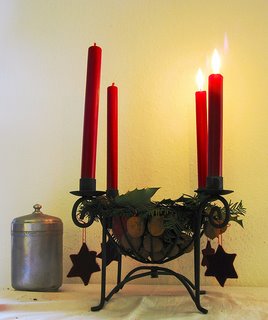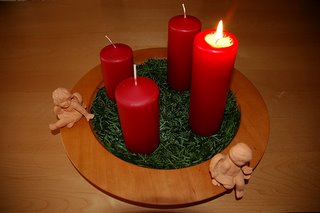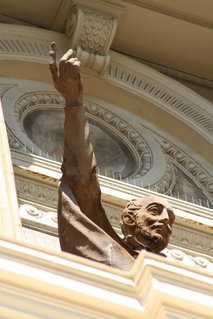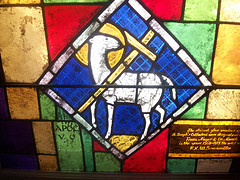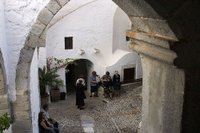
Holy Family C (31 Dec 2006) Sir 3. 2-7,12-14; Ps 128; 1Jn 3. 1-2,21-24; Lk 2. 41-52
Homily of Fr. Paul Panaretos, S.J.
Family Resemblance
The calendar suggests the Solemnity of the Holy Family helps us end 2006 and begin 2007. The end of a calendar year invites us to look both back and ahead into the future. Christians look back and review the past in order to chart their ways into the new year. The First Letter of John reminds us of the Christian conviction which the early Christians experienced: we have confidence in God. Christian confidence is not abstract--trust or faith in the Trinity. Christian confidence is a certainty: certain that the Trinity abides with us always.
That means we do not look back over a year annoyed or even tortured by shame or guilt. Rather, we take responsibility for our actions and inaction with God in Christ by their Spirit accompanying us with their loving kindness. Low points as well as high points in our past can serve us as cues for how to shape our living in the days, weeks and months ahead.
One cue to living as disciples of Messiah Jesus is both throughout the New Testament and easy to overlook. It is the simple word, now.
We share the conviction of our Christian forebears that the future in God will renew, revive and rejoin our Messiah with us completely. The first Christians also experienced the beginning of that renewal, revival and reunion in the present. Divine life was already accessible in, with and through Jesus, God with us. The First Letter of John expressed this conviction, this cue to living as disciples of Messiah Jesus: Beloved, we are God’s children now.
We are God’s children now is not something that goes without saying. Are you firmly convinced you are God’s child now and at each moment? I need to be reminded often that I am! I am probably more convinced about the power of exercise to produce salutary effects on my body than I am in how divine life effects my whole self. Yet, regardless of our fragile hold on this key conviction, God fully embraces us, holding each of us in God’s heart. God embracing us describes grace, our triune God’s total self-gift to us.
If Jesus made clear the complete extent to which our triune God reveres, protects and cares for us, then our reverence for one another, our protection and patient care for each other is how we most eloquently testify that Jesus accompanies us at each moment of our lives. This opportunity to testify in action to the selfless reverence, protection and care our triune God extends us begins in family. As God’s self-gift to Mary and Joseph, the infant and young boy, Jesus, needed their vigilant care, so do the infants and young children born to parents everywhere need their vigilant care. When we children grow mature, often our parents need our vigilance and loving care in ways that make demands and also free us to be ourselves in ways that we cannot know at the time.
Because no family is perfect, we entrust ourselves to the intercession of Mary, Joseph and Jesus. Imperfect as each may be, a family is a “school” in which “we can learn to realize who Christ really is”...“and gradually we may even learn to imitate him.
Those words of Pope Paul VI*, especially “to realize” and “gradually,” mean learning who Christ really is and who each of us really is does not depend on perfection or good fortune, happy as those are. They rely on cooperating with the gracious self-gift of God in Christ by their Spirit.
In your 10 minutes you set aside each day this week to unite yourself more closely with Jesus, come into the presence of the Trinity and feel them embracing you in welcome and in love. Ask for the grace to feel with your entire self that you are God’s child, flesh and blood who clothes divine life. Speak to any of the Divine Persons in your own words, asking them to deepen your desire to be more like them, especially patient and loving, in the new year to come. Lovingly patient is our family resemblance to the very God who creates us each and every moment.
________________
* When he visited Nazareth around Epiphany in 1964, Pope Paul recalled “three thoughts I take with me from Nazareth”: learning from “its silence”; “family life”; and “about work and the discipline it entails.” The pope’s address is part of the Office of Readings for this feast, Liturgy of the Hours, vol.1, pp. 426-428.
Photo in the public domain. Source: Wikimedia Commons.

